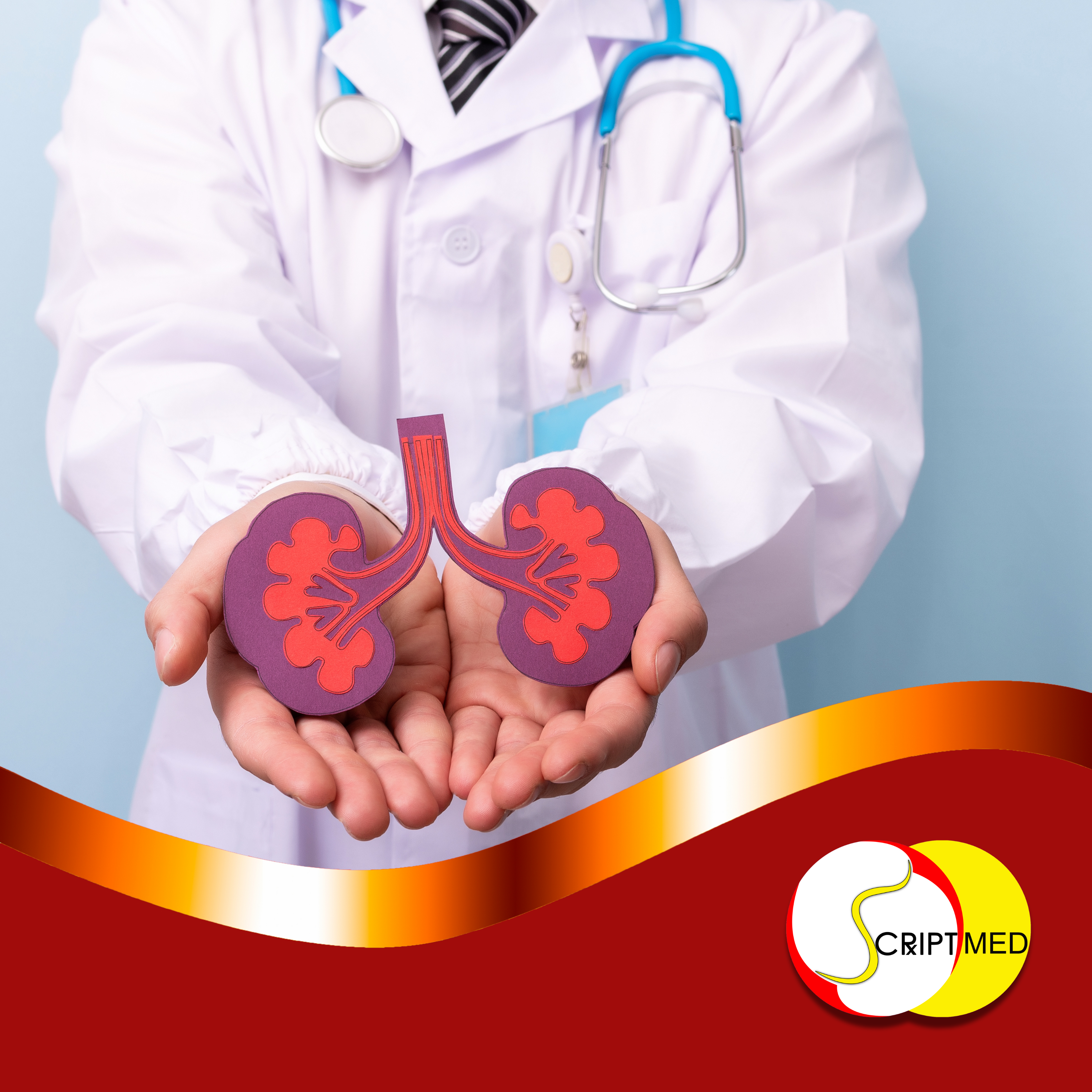About
Who we are
Founded in 2010, Scriptmed, Inc. was established in response to the growing need for high-quality healthcare solutions for patients with chronic kidney disease. With a focus on improving patient outcomes, Scriptmed is dedicated to distributing and selling both local and imported medical drugs that provide support and relief to individuals with renal health needs. As a trusted name in healthcare, we are committed to supplying healthcare professionals with advanced pharmaceutical products that foster better treatment results. Additionally, we have designed a healthcare delivery system that prioritizes convenience and effectively meets the needs of our end consumers.
Objectives:
- Secure partnerships and distributorships for high-quality, safe, and affordable pharmaceutical products from USFDA- and EMEA-approved manufacturers, as well as reputable local importers with Philippine FDA approval.
- Build close relationships with nephrologists and urologists across the country through personal and digital engagement, and actively participate in medical society activities.
- Forge partnerships with healthcare providers through promotional campaigns.
- Engage in government hospital biddings and private hospital partnerships, supported by endorsements from key stakeholders.
- Participate in programs that advocate social responsibility and contribute positively to the community.
At Scriptmed, Inc., we are driven by our mission to provide quality care, our vision to lead in renal health solutions, and our unwavering commitment to integrity and innovation. Our dedicated team works tirelessly to support Filipino patients, foster strong relationships within the healthcare industry, and remain at the forefront of renal healthcare in the Philippines.
Learn More
Understanding Chronic Kidney Disease (CKD): A Growing Health Concern in the Philippines
Chronic Kidney Disease (CKD) is a significant health issue in the Philippines, with an increasing number of Filipinos affected by this long-term condition. CKD involves the gradual loss of kidney function, impacting the kidneys' ability to filter waste, balance electrolytes, and regulate blood pressure. If left unmanaged, CKD can lead to severe complications, including high blood pressure, anemia, bone weakness, and even heart disease.
CKD in the Philippines: Prevalence and Risk Factors:
Chronic Kidney Disease (CKD) is a growing health concern in the Philippines, largely driven by diabetes, high blood pressure, and lifestyle factors like high-sodium diets and smoking. Kidney diseases are among the top causes of death in the country, with many Filipinos requiring dialysis or kidney transplants each year. CKD progresses through five stages, often remaining undetected until advanced stages when symptoms like fatigue, leg swelling, and elevated blood pressure appear. This makes early diagnosis essential (Department of Health; National Kidney and Transplant Institute). Regular checkups and lifestyle changes are critical for managing CKD, especially for individuals with diabetes, hypertension, or a family history of kidney disease. Early detection through blood and urine tests can significantly delay disease progression. Management strategies include controlling blood pressure, reducing salt intake, and taking prescribed medications. In severe cases, patients may need dialysis or a transplant, though access to care can be limited in rural areas. Government initiatives and programs like PhilHealth are helping make treatment more affordable for CKD patients (Philippine Society of Nephrology).
References:
1. Department of Health Philippines. "Renal Disease Control Program (REDCOP)." DOH, www.doh.gov.ph
2. National Kidney and Transplant Institute. "Chronic Kidney Disease in the Philippines." NKTI,www.nkti.gov.ph
3. Philippine Society of Nephrology. "Kidney Health Awareness." PSN, www.psn.org.ph
NOTE: ALWAYS CONSULT WITH A HEALTHCARE PROFESSIONAL FOR PERSONALIZED ADVICE ON MANAGING CKD.

Scriptmed Inc Cares for Dialysis patients
Caring for someone on dialysis can be overwhelming at first. The most challenging part of dialysis is adjusting to a new routine. Dialysis treatments can be lengthy, lasting three to four hours, so time needs to be blocked out during the day for the treatments. Additionally, even though the patient spends the dialysis treatment sitting down, they may feel worn out afterward and not want to do anything else that day.
It is not all bad news though! Dialysis patients can still travel. Dialysis is standard, and treatment centers can be found all over the United States and the world. Often your current treatment center can help you schedule appointments at other locations. And while a dialysis patient may not be able to play contact sports or do any heavy lifting, they can still lead an active lifestyle. Studies have shown that dialysis patients do better when they maintain an active lifestyle and stay engaged in work and hobbies.
- Receiving Treatment for Kidney Failure
- Returning to Work and Other Activities
- Dealing With Emotions
- When Young Adults have Kidney Disease

Scriptmed Inc Insights
With medical advances, the treatments and medicines available today help many ESRD patients to feel stronger and have more energy. There may be some fatigue at the beginning while patients are getting used to dialysis treatments. However, this should decrease in time. Studies have shown that most ESRD patients have good attendance records. So employers should rest assured that having an employee who has ESRD does not necessarily mean that the individual will be missing a lot of days. Many people with ESRD are conscientious and valued employees who make a contribution to their place of business.
Patients who choose dialysis may need a temporary reduction of hours to help them ease into their new routine. Those who choose in-center hemodialysis need to go for treatments about three times a week for three to four hours. Many dialysis centers have flexible schedules to accommodate working people, and the employee with ESRD may be able to arrange dialysis treatments in the evenings. If this is not possible, the employee may need to arrange "flex-time" a few days a week, perhaps coming in earlier to make up for leaving early for treatments. Patients who choose home hemodialysis can do their treatments at their convenience so they will not interfere with their work schedule.

Scriptmed Inc Health Tips
Renal dietitians encourage most people on Hemodialysis to eat high-quality protein because it produces less waste for removal during dialysis. High-quality protein comes from meat, poultry, fish, and eggs. Avoid processed meats such as hot dogs and canned chili, which have high amounts of sodium and phosphorus.
To control potassium levels, limit potassium-rich foods such as avocados, bananas, kiwis, and dried fruit. Choose fruits and vegetables that are lower in potassium. Have very small portions of foods that are higher in potassium, such as one or two cherry tomatoes on a salad or a few raisins in your oatmeal.
- Removing waste, salt, and extra water to prevent them from building up in the body
- Keeping a safe level of certain chemicals in your blood, such as potassium, sodium, and bicarbonate
- Helping to control blood pressure

Products
What do we offer
F.A.Q
Frequently Asked Questions
-
How to buy or order medicines?
You can buy our products directly in our pharmacy or you may call our sales team via viber or messenger to process your order. You may also visit our Online Pharmacy website.
-
What are your mode of payments?
We accept GCASH, Maya, Bank Transfer, Credit Card, and COD nationwide
-
What are your modes of delivery?
For Metro Manila, we have our inhouse riders. We ship out order in 1-2 days depending on delivery volume.
For Provincial orders, we use LBC as our primary courier and Ninjavan or Lalamove for COD deliveries. -
Do you require Prescriptions?
Yes, our products are prescription medicines so a valid prescription from a physician is required on any transactions with our products.
-
Do you provide Sales Invoice?
Yes, we do provide Sales Invoice for all orders.
Contact
Contact Us
 Scriptmed Inc.
Scriptmed Inc.